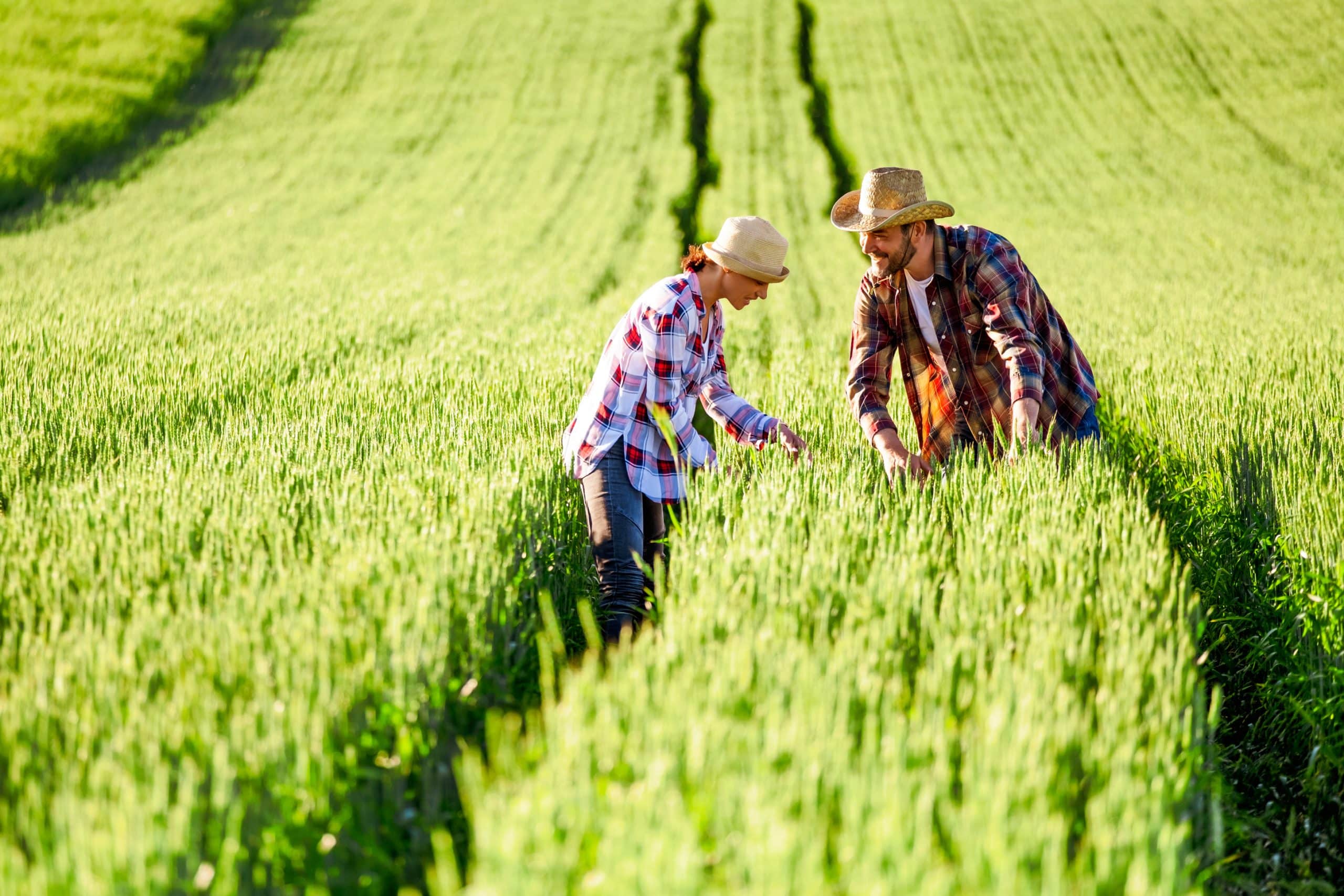The landscape of agriculture in the United Kingdom is changing rapidly, thanks to the integration of advanced technologies. Smart farming, an innovative approach that leverages modern tech to improve agricultural practices, is making significant strides. From data-driven decision-making processes to precision farming techniques, the UK’s agricultural sector is witnessing a technological revolution that is shaping the future of farming. With the introduction of smart farms, farmers now have a range of tools at their fingertips to increase productivity, reduce waste, and ensure sustainable production of food. This article will explore the latest in smart farming techniques that are transforming the UK’s agricultural sector.
The Advent of Smart Farming
The concept of smart farming has altered traditional farming practices, shifting from a labor-intensive process to a technology-driven one. Smart farming leverages technologies such as the Internet of Things (IoT), artificial intelligence (AI), and big data analytics to streamline and enhance farming processes.
En parallèle : What Are the Best Practices for Enhancing Indoor Environmental Quality in UK’s Schools?
Farmers now capitalize on data from satellite imagery, weather stations, and on-site sensors to monitor their farms. The real-time information obtained from these sources helps in making informed decisions about irrigation, fertilizer application, pest control, and crop rotation. This approach, known as precision farming, has increased crop yields while reducing the environmental footprint of farming activities.
The Role of Internet of Things (IoT) in Smart Farming
One of the significant technologies aiding smart farming is the Internet of Things (IoT). IoT connects various devices and systems on a farm, enabling them to communicate and interact over the internet. The usage of IoT in farming has led to the development of smart farms.
A lire aussi : What Are the Ethical and Privacy Concerns with the Rise of Home DNA Testing Kits in the UK?
On smart farms, a network of sensors and devices is employed to collect data about various parameters such as soil moisture, temperature, and crop health. This data is then sent to a centralized system for analysis, providing farmers with valuable insights that can guide their farming practices. For instance, soil sensors can indicate when a field requires watering, reducing water wastage and improving crop health.
Precision Farming: The way forward
Precision farming is another smart farming technique shaping the future of agriculture. It involves the use of technology and data to manage fields accurately and effectively. Precision farming techniques include GPS technology, drone imaging, and sensor technologies.
With precision farming, farmers can manage their fields with more accuracy and control. GPS technology, for instance, can provide precise information about the field’s topography and soil characteristics. This data can guide farmers in their decision-making process about planting, irrigation, and harvesting.
Drone imaging is another precision farming technique. Drones equipped with high-resolution cameras and sensors can scan the fields and collect valuable data about crop health, soil condition, and pest infestation. This information enables farmers to intervene promptly and accurately where required, improving crop health and yield.
Data-Driven Decision Making in Agriculture
Data is the new gold in the world of agriculture. The rise of big data and analytics in farming has enabled farmers to make more informed and efficient decisions. Data-driven decision-making involves collecting data from various sources like satellites, sensors, weather reports, and drones and analyzing it to make strategic decisions about farming.
For instance, data about soil composition and weather conditions can help determine the optimal time and place to plant certain crops. Similarly, data about pest activity can guide timely interventions to prevent crop damage. This approach not only enhances production efficiency but also contributes to sustainable farming practices.
Impact of Smart Farming on Food Production
Smart farming techniques have a significant impact on food production. They enable farmers to increase their crop yields, reduce waste, and ensure the sustainable production of food. Technologies such as IoT and big data analytics help in optimizing the use of resources like water and fertilizers, minimizing their wastage, and reducing the environmental footprint of farming activities.
The information gathered from smart farming technologies also aids in forecasting crop yields, which can help in planning and ensuring food security. Moreover, smart farming techniques can identify and control pest infestations early, reducing crop losses and improving food production.
In the wake of growing population and changing climate conditions, the advancement in smart farming techniques is indeed a boon for the agricultural sector. By embracing these technologies, farmers in the UK are not only improving their productivity but are also contributing to a more sustainable and secure food system.
Artificial Intelligence and Machine Learning in Smart Agriculture
The incorporation of Artificial Intelligence (AI) and Machine Learning (ML) into farming practices is proving to be a game-changer. AI and ML have vast potential in transforming agricultural operations, from predicting climate patterns to optimizing field management.
Climate change has intensified the unpredictability of weather patterns, making farming a more complex and risky endeavour. However, AI has shown its prowess in predicting these patterns, allowing farmers to make data-driven decisions about when to plant, irrigate, and harvest crops. AI uses real-time data from various sources, such as satellite imagery and weather stations, and applies complex algorithms to make accurate weather predictions.
In terms of field management, AI and ML can analyze data from sensors deployed in fields to monitor soil moisture, temperature, and nutrient levels. This analysis enables precision agriculture by predicting the optimal amounts of water, fertilizers, and pesticides required for each crop. Additionally, machine learning algorithms can identify patterns in crop growth and yield, guiding farmers in optimizing their farming techniques.
AI and ML also play a critical role in detecting pest and disease outbreaks. Machine learning models can analyze drone and satellite imagery to identify early signs of pest infestation or disease spread. Timely detection and intervention can prevent crop losses, improving overall crop production.
The Emergence of Vertical Farming
In an era of increasing urbanization and climate change, vertical farming is emerging as a sustainable solution for food production. Vertical farming is a technique where crops are grown in stacked layers, typically in controlled indoor environments. This method of farming is particularly relevant to urban settings where space is at a premium.
Vertical farming leverages smart farming technologies like IoT devices, AI, and precision farming methods. Sensors monitor environmental factors such as temperature, light, humidity, and soil nutrient levels in real-time. This data assists in creating an optimal environment for each crop, leading to higher yields and quality.
Artificial intelligence is used to analyze the collected data and make adjustments to the growing conditions. For instance, if the AI detects that the soil nutrient levels have dropped, it can adjust the introduced nutrients to ensure the plants remain healthy. Similarly, if the temperature or humidity levels deviate from the optimal range, the AI can adjust the environmental controls to maintain the perfect growing conditions.
Vertical farming not only increases yield per square foot but also reduces water usage by up to 70% compared to traditional farming techniques. Furthermore, since it is not dependent on weather conditions, it allows year-round crop production, contributing to food security.
Conclusion: The Future of UK’s Agricultural Sector
The advent of smart farming techniques has revolutionized the UK’s agricultural sector. The integration of technologies like IoT, AI, machine learning, and precision farming has enhanced the decision-making abilities of farmers and improved the efficiency of farming practices.
The use of real-time data from various sources enables farmers to manage their resources effectively, optimize their operations, and increase crop yields. Furthermore, these technologies are paving the way for innovative farming techniques like vertical farming, which are crucial in the face of urbanization and climate change.
The amalgamation of agri tech into farming practices is not just increasing the productivity of farm businesses but also contributing significantly to creating sustainable and resilient food systems. As we continue to navigate the challenges presented by a growing population and changing climate, smart agriculture undoubtedly holds the key to the future of farming in the UK.











